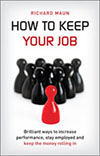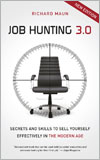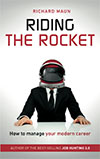better business blog
Tips and stories to add value to you and your organisation

Skills Vs Traits
Would you rather have a fast car, or a reliable car?
I know people buy fast cars and then enjoy friendly waves from people, once parked on the hard shoulder, as their engine gently steams away.
Perhaps they bought the car to cheer up passing traffic on a dreary day?
Perhaps not.
However, us humans are terrible at making decisions, which is why fast and unreliable cars continue to he purchased. We also love a good cup holder too …forget the actual cost of the repayment schedule, if it’s got great cup holders then we want it!
This is because we are emotional beings and can struggle to make data-rational decisions. Often we don’t even have any relevant data to hand, or take time to seek it out.
Hiring new starters is in many ways like buying a new car. There’s cost and risk and we have to trust the sales person sitting in front of us.
The big problem is that we tend to hire skills and can often overlook traits, in the same way we might buy a fast car instead of a reliable one.
Skills are what we do. Traits are how we do them.
Skills can be learned.
Traits tend to be fixed. We can tinker in the margins and with coaching and support can invite people to grow and develop. However, there will always be a hard core of traits that tend to stay the same.
For example, if a potential employee likes new and exciting things and is chatty during an interview, we will tend to be impressed by them.
We hire them and park them at a desk and then are surprised when they get bored and don’t focus on the task in hand.
If we’d hired them for their traits, their natural tenancy to seek out new things, we could have given them a different role and ensured their success.
Or perhaps we wouldn’t have hired them at all.
One way to uncover traits is with a psychometric profile. I use a product called LaunchPad for this. (Useful and easy to do over the internet).
A client wanted to promote people into leadership positions and we used the results to ascertain who had natural traits in that direction. Interestingly, none of the candidates did, so we had to hire in new expertise.
Another way to find out traits is to hire someone and give them a probationary period. We can see them doing the work and then decide if we want to keep them. This can overcome a stellar interview performance that fails to translate into actual output.
The trick here is to stick to the process and to not allow new starters to drift into permanent employment, without proper management oversight and review.
We also have to be aware of our own sense of bias. Someone who seems quiet and withdrawn at interview may just be nervous. They may be the right person for the job, but we overlook them and hire the person with the biggest smile instead.
We are often naturally biased towards warmth and charm.
If we don’t want to use a psychometric and feel nervous about a lengthy probation period, then the best fall back is a tough interview where the candidate has to explain in detail what they did in their last role and how they did it.
If they say ‘we were successful’ then we must focus on the ‘I’ factors. What did they actually do? Was the team successful in spite of them? What would their colleagues say about their traits? We want them to say ‘I did this…’ and so on.
Searching questions can probe behind the smiles. We can be rigorous in cross checking the traits we need against those presented to us.
Or we can just buy the fast car and hope it doesn’t break down!
This week think about your traits. Are you organised, diligent, accurate and friendly, for example? What do you need to be mindful of?
Does one of your team have some wrinkles that need to be ironed out? Coaching can help here and you’re always welcome to get in touch and discuss options.
Have fun!
Next week: Would You Like Your Own Coaching Business?
e-publishing
Click icon for details


recent posts
browse archive
books
Click cover to view details on Amazon

How to Keep Your Job
Brilliant ways to increase performance, stay employed and keep the money rolling in
Published 2011 Marshall Cavendish
208pp

Job Hunting 3.0
Secrets and skills to sell yourself effectively in the Modern Age
Published 2010 Marshall Cavendish
260pp

 RSS
RSS


